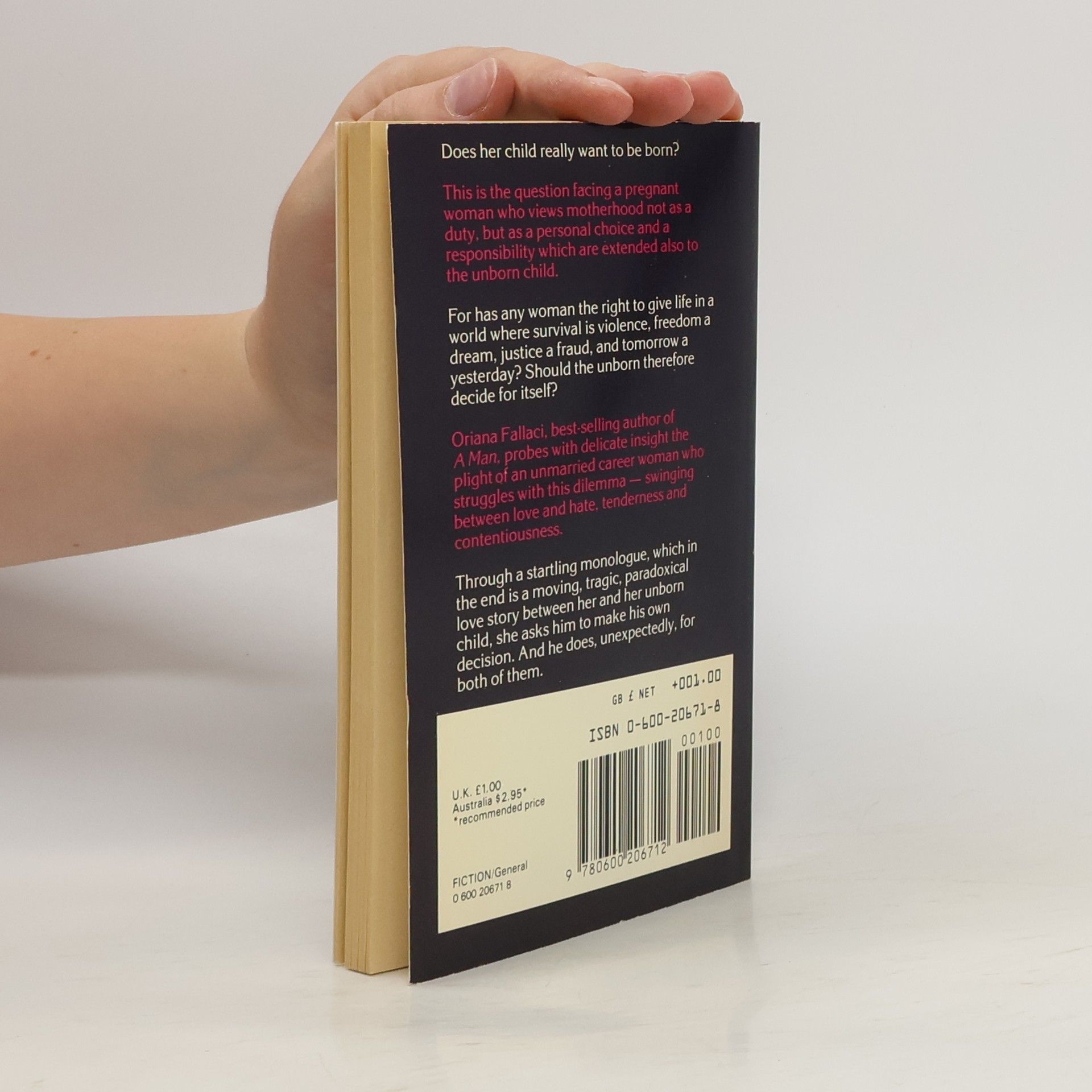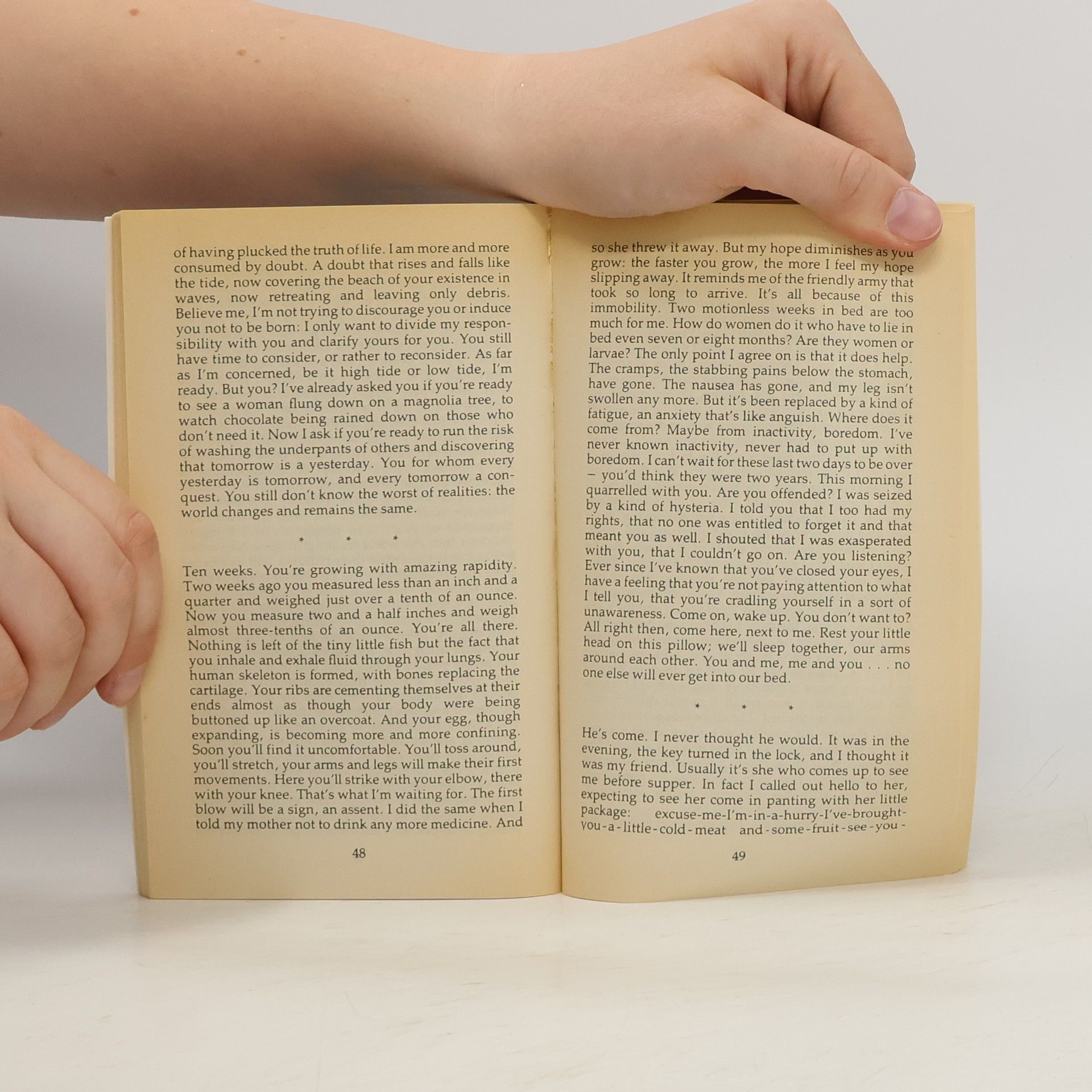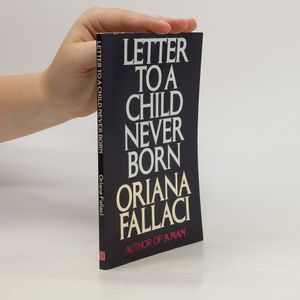Lo sapevo, in cuor mio. Lo sapevo che sarebbe stata una lettura difficile. Di quelle che ti scavano dentro con dita invisibili, lasciandoti un nodo in gola e domande che fanno eco nella mente anche dopo l’ultima pagina. Eppure l’ho portata a termine. Non è il primo libro che mi provoca questo effetto, ma ogni volta è come se fosse la prima. Oriana Fallaci non scrive: affonda. Con parole che sanno essere lama e carezza, ci regala un monologo dirompente, intimo, feroce, umano. È una donna che parla a un figlio che forse non nascerà mai, ma è anche una donna che parla al mondo intero: alla maternità come scelta e non come destino, alla libertà, alla paura, alla forza che a volte vacilla e a volte esplode. È un libro che non si legge: si attraversa. Ti costringe a metterti a nudo, a pensare, a ricordare, a decidere. E anche se a tratti fa male, è un dolore che vale la pena sentire. Perché ogni parola, ogni esitazione, ogni strappo della protagonista è una verità che brucia ancora oggi. L’ho finito con rispetto. Con fatica. Ma anche con una gratitudine silenziosa per aver avuto il coraggio di leggerlo fino in fondo. E, forse, per aver sentito qualcosa che non tutti vogliono o riescono a sentire.
Maggiori informazioni sul libro
Published by Rizzoli in 1975, Letter to a Child Never Born was quickly translated and sold in twenty-seven countries, becoming an extraordinary world success. It is the tragic monologue of a woman speaking with the child she carries in her womb. This letter confronts the burning theme of abortion, and the meaning of life, by asking difficult questions: Is it fair to impose life even if it means suffering? Would it be better not to be born at all? Letter to a Child Never Born touches on the real meaning of being a woman: the power to give life or not. When the book begins, the protagonist is upset after learning she is pregnant. She knows nothing about the child, except that this creature depends totally and uniquely on her own choices. The creation of another person directly within one’s own body is a very shocking thing. The sense of responsibility is huge; it is a heavy burden that gives life to endless reflections, from the origin of our existence to the shame of our selfishness. If the child could choose, would he prefer to be born, to grow up, and to suffer, or would he return to the joyful limbo from which he came? A woman’s freedom and individuality are also challenged by a newborn—should she renounce her freedom, her job, and her choice? What should she do at this point?
Acquisto del libro
Letter to a Child Never Born, Oriana Fallaci
- Lingua
- Pubblicato
- 1982
- product-detail.submit-box.info.binding
- (In brossura)




